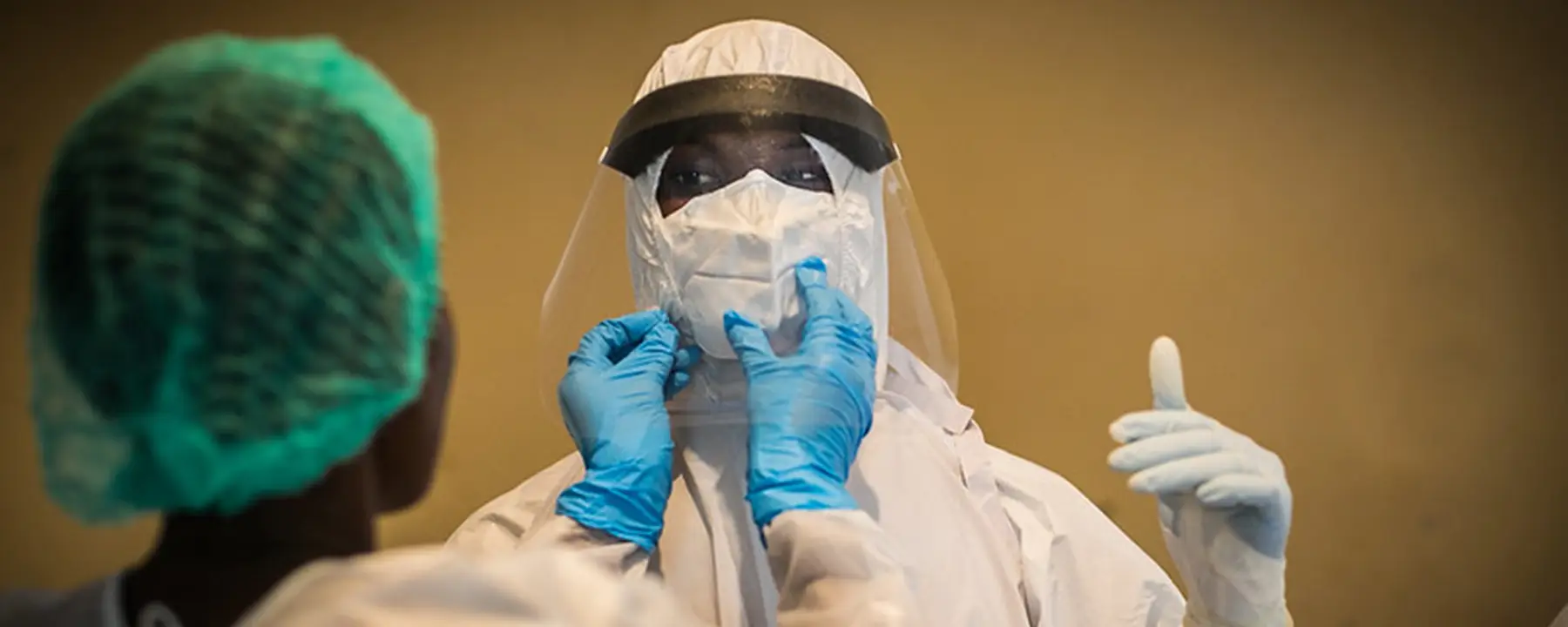Supporting health systems and solar energy companies during an unprecedented global crisis
Objective:
To support the electrification of healthcare facilities and help off-grid solar companies navigate the changing business environment amidst the COVID-19 pandemic in sub-Saharan Africa.
Approach:
The Power Africa Off-grid Project is adapting some of its activities and adding new ones to respond to the COVID-19 pandemic. This response includes providing grants to electrify healthcare facilities and supporting off-grid energy companies to adjust their business practices to operate under new guidelines and principles due to the pandemic.
Impact:
By widening access to reliable electricity in healthcare facilities through the implementation of off-grid energy solutions, Power Africa is helping to alleviate the potential impacts of the COVID-19 pandemic on health systems, while providing ways for off-grid solar companies to remain operational in the face of an economic crisis.
The COVID-19 pandemic continues to threaten the lives of millions around the globe, straining economies and healthcare systems. The pandemic could be especially damaging to regions without access to reliable electricity, such as sub-Saharan Africa, where only 28 percent of healthcare facilities on average have access to reliable electricity.
Electricity is essential for providing key healthcare services, such as providing sufficient lighting to diagnose and treat patients, refrigerators for vaccines, powering heart rate monitors, ultrasound machines, and microscopes. As these facilities run the risk of being unable to provide essential services, the impact of COVID-19 could be devastating without intervention.
Off-grid solar companies are integral to increasing electricity access to healthcare facilities as well as the two out of three people in sub-Saharan Africa without power. However, they are also facing challenges as they try to navigate the current business environment impacted by COVID-19. According to a recent survey by the Global Off-Grid Lighting Association, around 50 percent of member companies predict they will be in serious financial trouble as a result of the pandemic.
The Power Africa Off-grid Project’s Activities to Address the Public Health Crisis
The RTI-implemented and USAID-funded Power Africa Off-grid Project, which supports the expansion of off-grid energy access with the goal of facilitating 8 million new off-grid electricity connections in sub-Saharan Africa by 2022, is adapting to respond to the COVID-19 pandemic. This response includes a mix of new and newly-adjusted activities, such as providing grants to electrify healthcare facilities and supporting off-grid solar companies to adapt their business practices to operate under new guidelines and principles due to the pandemic.
Supporting the Electrification of Healthcare Facilities
The project is providing grants to increase electricity access in rural, peri-urban, and urban healthcare facilities across sub-Saharan Africa. PAOP recently awarded grants to 9 companies to test out innovative business models for delivering electricity to 288 facilities. By supporting the development and maturation of sustainable business models, these grants will have a highly positive impact in the fight against COVID-19 and will improve health care delivery across sub-Saharan Africa.
Through this activity, the project is helping to establish partnerships between the health sector and off-grid solar companies, assisting in the global effort to electrify healthcare facilities. Off-grid energy companies can build on their experience providing energy services to a diverse clientele in the region and their innate pursuit for business models that promote sustainability.
Helping Off-grid Solar Companies Navigate the Pandemic
The Power Africa Off-grid Project provides tailored technical assistance to off-grid solar companies and investors in the areas of business performance, access to finance, market analytics, and government policy. This support has never been more critical, as many companies are struggling to stay in business due to the pandemic and face a challenging economic environment over the coming months.
To help off-grid solar companies during this trying time, project staff are providing information about COVID-19 policies and regulations in key countries, developing targeted COVID-19 factsheets, conducting empirical analyses related to COVID-19, and other forms of market intelligence. The team is also using modeling and scenario planning to help companies craft proactive responses to the pandemic.
In an effort to promote financial stability within the off-grid solar sector, the project’s finance experts are advising companies on their equity and debt-raising activities, as well as collaborating with industry stakeholders to help structure a sector relief fund. The team’s legal experts are helping companies understand how they might be able to negotiate more flexible loan repayment terms due to COVID-19. Additionally, project staff plan to release a new customizable financial modeling tool for companies to adapt their pay-as-you-go financing options for customers.
The Sustainability of the Power Africa Off-grid Project’s COVID-19 Work
As this health crisis continues, Power Africa is adapting to meet critical needs while providing essential support to the off-grid solar sector and off-grid communities in sub-Saharan Africa. By focusing on supporting private companies to develop innovative ways to support the health sector, the Power Africa Off-grid Project’s work will leave a lasting legacy as these companies test and scale solutions to address the energy gap in health facilities.
- U.S. Agency for International Development (USAID)


